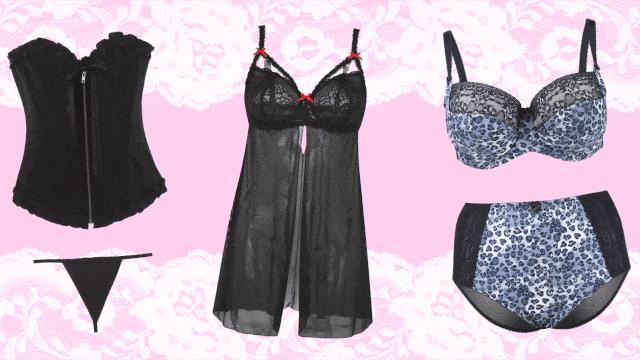
At a time when a growing number of new players are getting into intimatewear – thanks to its burgeoning popularity in the country – and cash in on the opportunities that the product category offers, Hypoid Group with more than one-and-a-half decade of experience in innerwear, is an established name in Bangladesh already.
“Hypoid Lingerie Limited started operations in 2001… We started our business with the help and collaboration of Hop Lun initially but now we are working independently,” declares a proud Engineer Zakir Hossain, Chairman of the company, speaking to Apparel Resources . Growing over the years, Hossain has since added five more production units (Hypoid Girls Fashion Limited, Hypoid Fashions Limited, Needs Fashions Private Limited, Hy-Lan Sweater International Limited and Hypoid Composite Knit Limited) to offer a wide range of products in woven and knit (in which innerwear holds the sway over other categories) to cater to names such as JCPenney, Walmart, K-mart, Target, Bilka Aps, and many more, in USA and Europe.

“The US buyers order big volume shipments. Though the margins are less but volume plays a key role. I’ve been doing business with the US customers for 15 years and know even if the margins are less I can survive by the volume,” reasons Hossain. In the US market Hypoid’s offerings are in the ratio of 65:35 for men’s and women’s categories while for Europe it is 70:30.
The emerging markets of Brazil, Mexico, Russia and China are some of the potential destinations to look forward to for the future, Hossain underlines.
In innerwear, Hypoid’s produces bra (around 3,00,000 pieces monthly, including wired, padded and in lace bras), panty 5,00,000 pieces and boxer shorts 8,64,000 pieces (for men, women and children). “In women’s section, our overall production capacity is 1.5 million pieces per month (assorted items),” says Hossain, adding, “We also do men’s briefs, vests along with swimsuits.”
Retrofitting the lingerie production units currently to meet the compliance requirements though has slowed down the production but has given Hossain the much-needed opportunity in terms of adding new machines and augmenting the production area to increase capacities further. “Now our production volume is very limited due to ongoing remediation work. We’re going through an expansion process to increase our capacity and also meet the Accord’s compliance requirements. After expansion our total floor area will be 1,00,000 sq. ft. from the present 24,000 sq. ft. We are also changing some machines to increase efficiencies. For panties and swimsuits, we’ve the required machinery but we are planning to get some latest machines for bra, which will not only increase the efficiency but also improve product quality…,” Hossain takes through the expansion, remediation and refurbishing plans.
Men’s products being more profitable than the women’s, the Chairman of Hypoid Group is planning to add new machines for the men’s section as well. “For men’s section we need more machines because men’s items need more space. For ladieswear, it is lesser machines with higher production but the CM is also lesser in women’s items. If we get US $ 5 for men’s items, the same would be around US $ 3.50 to US $ 4 for the women’s…,” Hossain explains.
With many other companies embarking on expanding capacities and an increased thrust on quality of products in the global apparel market, Hossain feels Hypoid’s endeavour to improve in these two fronts is much-needed to remain in the race. “Unless you don’t have quality you can’t survive in the market… Compared to other categories the competition is less in intimatewear but the existing players are growing internally day by day. So we need to focus both on quality as well as quantity,” justifies Hossain about his steps.
Despite the diminishing profit margins and inadequate local availability of accessories, Bangladesh would continue to grow in the intimatewear section, Hossain feels, more so given the country’s competencies and abundant manpower. The so-called business shift from China is also going to boost Bangladesh’s prospects.
Also to be taken into account in this growth are apparel manufacturers adding new product categories in their product basket that have global demands. “The next business growth will be in seamless bra. This will not only eliminate the requirement of sewing machines but also the operators…,” maintains Hossain on a parting note, underlining ways to counter the rising labour cost and diminishing margins and also remain viable to the market demands and requirements.

Leave a Reply